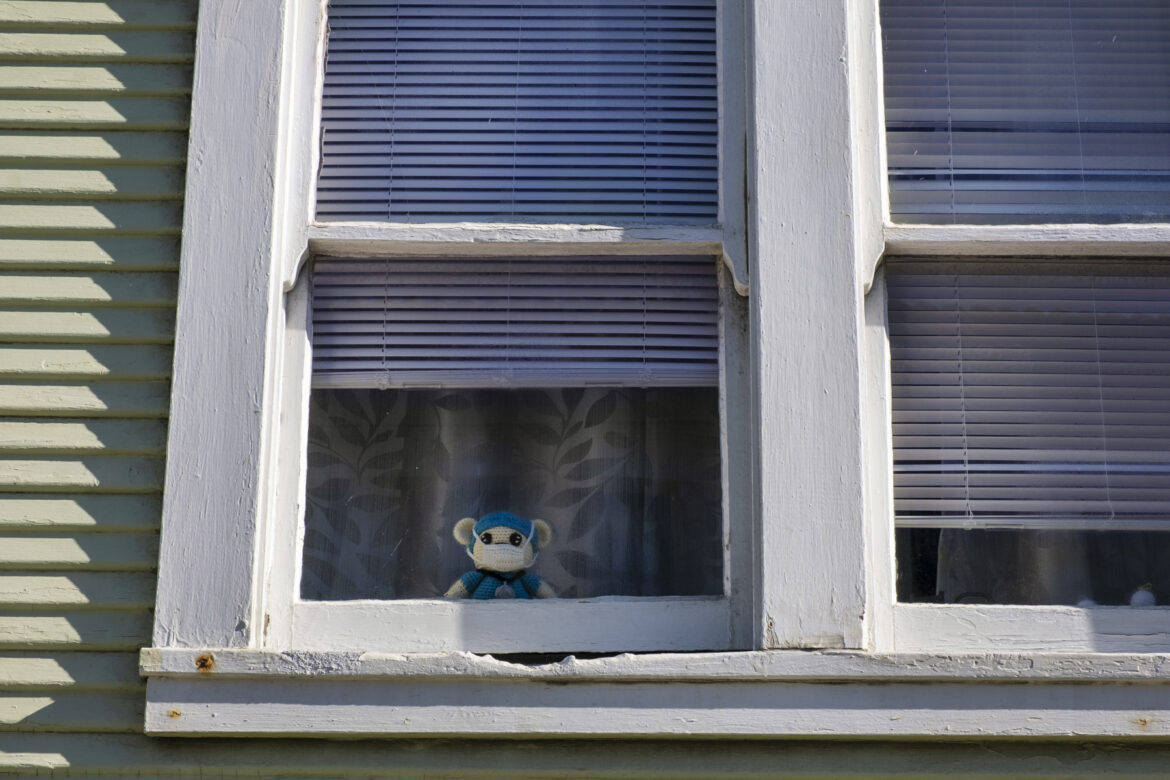This article is adapted from our “Civic” podcast. Click the audio player to hear the full story.
Landlords may proceed with evictions against tenants for unpaid rent beginning Oct. 1 as a statewide moratorium on such evictions expires. Tenant, legal and public health advocates are urging tenants to apply for rent relief money, and want municipalities to approve additional protections, citing loss of housing as a public health concern.
Melissa Jones, executive director of the Bay Area Regional Health Inequities Initiative, a coalition of public health departments, said the health impacts of unaffordable housing were well documented even before the pandemic.
“These concerns have only gotten worse during the pandemic. Today, about one million Californian adults are behind on rent, and 80% of those live in households with children,” Jones said at a press conference outlining eight actions municipalities can take to protect renters.
“The eviction moratoriums that are now expiring have mattered greatly for health,” said Jones, adding that research led by Dr. Kathryn Leifheit indicated “that our statewide moratorium prevented over 160,000 COVID-19 cases and 6,000 deaths as of November.”
In San Francisco, tenants must pay at least 25% of the rent they owed from October 2020 through September 2021 by the time the state moratorium expires or face possible eviction. Rent for October is also due in full. Eviction protections have been on the verge of expiring before, prompting dire warnings from advocates about a flood of displacement, and subsequent legislative scrambles to add new protections.
But this time, no extension appears forthcoming. Unfortunately, the coronavirus pandemic has not concluded in synch with that timeline, said Lupe Arreola, executive director of Tenants Together.
“A virus is not going to work that way,” Arreola said. “There’s definitely still an increasing need of ensuring that people are not having additional exposure by having to be either homeless or having to be looking for housing, and potentially also still having a depressed economic state.”
She said the ongoing eviction crisis is likely to persist for years.
Funding is available to help tenants who owe rent pay it off, and Arreola and others are urging people who have piling rent debts to apply for relief. Only about a quarter of the aid available statewide has been disbursed, and there is a backlog of cases to be processed, but advocates say documenting a request for aid now is essential.
“That will be your defense if your landlord tries to evict you,” said Shanti Singh, communications and legislative director for Tenants Together.
Through March 2022, eviction cases against tenants who can prove their application for rent relief is pending will be paused, under the assumption that the debt prompting the eviction may be repaid.
“In the past, tenants had to come forward and assert defenses. Now the landlord has the burden to prove that they’ve been denied rental assistance after good-faith efforts to obtain it, or they can’t even get their summons,” Ora Prochovnik, director of litigation and policy at the Eviction Defense Collaborative, said in July.
However, if an applicant is denied — whether due to ineligibility or lack of available relief funds — the eviction case can proceed.
Arreola and Singh also advised tenants to check on their applications for rent relief regularly to prevent their cases being closed due to missing information.
“Sometimes people will have missing information in their application, and they will not know that, because they got an email and it went to their spam folder, or people don’t check their email frequently,” Arreola said. “Or, you know, most people don’t answer a call that they don’t recognize. And for whatever reason, if they don’t respond within a certain amount of time, and their application’s not completed, their application will be closed.”
Tenants generally have 15 days to respond to these requests for information. Those who have a pending application for rent relief should follow up either with the state program or with the designated local partner organization, Arreola said.
The state law that created the moratorium expiring Sept. 30 also preempts municipalities from barring evictions for nonpayment of rent through March 2022. But cities can still add protections against other kinds of evictions. For example, local jurisdictions could place additional limits on owner-move-in evictions and evictions under the Ellis Act, which landlords can file if they want to cease renting the property entirely. Arreola said Tenants Together has recently seen an increase in both. Local governments can also strengthen protections against harassment, as Richmond and Long Beach have done, Singh said.
“We’re going to continue to see situations of harassment between tenants and landlords, and so passing those ordinances is also something critical that can be done right away, and that a few municipalities have already stepped forward and done,” she said.
For now, Arreola said, tenants who have fallen on hard times should not hesitate to reach out for help.
“I’ve seen so many cases of people who just are distraught that they have not been able to provide for themselves and their family,” she said. “That is something very heavy to carry around to just kind of want to tell people: ‘It is not your fault that this has happened, this is a pandemic that has impacted the world.’”
Tenants can apply for rent relief through the state’s website. Read more about eviction protections here. Read a transcript of an interview with Ora Prochovnik here.
A segment from our radio show and podcast, “Civic.” Listen at 8 a.m. and 6 p.m. Tuesdays and Thursdays at 102.5 FM in San Francisco, or online at ksfp.fm, and subscribe on Apple, Google, Spotify or Stitcher.
Correction 9/24/21: Dr. Kathryn Leifheit led research on the health effects of the statewide eviction moratorium. Her name was misspelled in an earlier version of this story.










